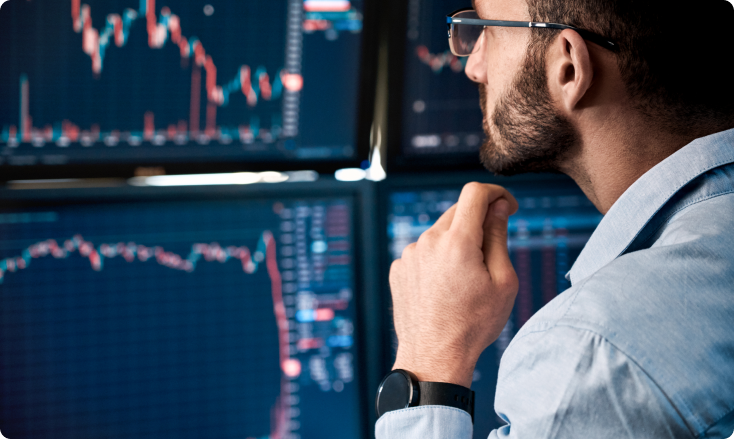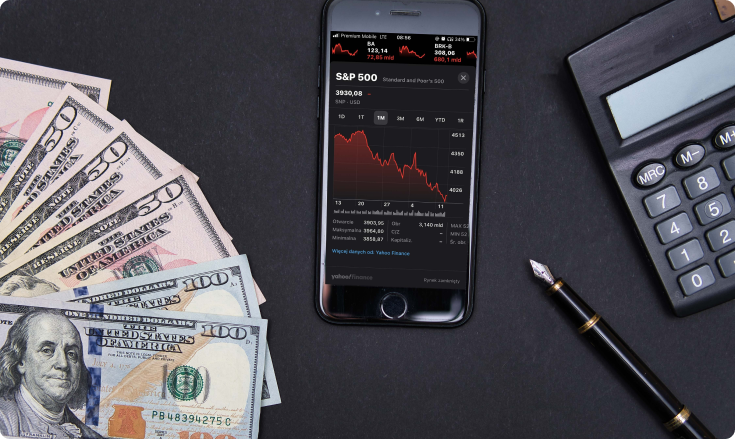Foreign Exchange - Everything you need to know

Online forex trading only became possible around 1994 after the Internet started to become more popular. The classic forex trading, though, is 500 years old.
In this article, we will provide you with facts about the foreign exchange market, advise you on how to protect yourself from fraud and how to recognize the right broker for your investing business.

What is the foreign exchange market?
The foreign exchange is the market with the highest liquidity in the world, as well as the biggest online financial market we know today. It has a daily turnover of over $5 trillion with almost 10 million traders all over the globe. Some of the participants in this market are government central banks, hedge funds, brokers and dealers and insurance companies.
With this in mind, you can rest assured that forex trading is definitely not a scam.
But why so many scam stories then?
As time goes by, more and more traders are sharing their forex trading stories. Some of these stories are about successful trades and tactics being used, but some of them point to scammers and their unfortunate encounters.
So, let’s elaborate on that.
First, you need to know that the foreign exchange market doesn’t have one centralized body that governs currency trading, and being the largest and the most liquid market in the world, it is extremely hard to regulate.
With this being said, there are many regulated brokerage companies as there are others that are not or are regulated in offshore countries where the criteria to get licensed are very poor.
These unregulated companies can convince you to invest money with them and later on close down their offices or simply unplug the phones and run away with your money.
Because they are unregulated, it’s hard for one to prosecute them.
So, this is where the stories originate and tainted the industry with accusations that sparked insecurity in the new traders.

How can you prevent that from happening to you?
Choose the right broker
When choosing a reliable broker, you should focus on a few things.
- Every country has a regulatory body (or bodies) that issues licenses for this kind of business and monitors brokers. Meaning that a legal broker will have a certificate issued by these authorities. It should normally be displayed on a Broker’s website. You can see the Limit Prime certificate here.
- Do not believe brokers who tell you that it’s easy to make money and that you will be in the surplus at all times. That is simply impossible and under any logic.
- Feel free to contact a broker. It is your right to ask questions. A professional broker will understand your need to learn more about them and might even organize a meeting.
- A reliable broker should be supportive and provide you with market analysis, news and educational material.
Stay away from “ too good to be true” deals
If a company is making claims of giving you “sure predictions” or projections based on “past performance” — particularly when you factor in the historic bull market of the ’90s, you better stay away from it.
Relying on wildly optimistic projections is very dangerous and can result in losing more money than you can afford.
People sell forex signals over the Internet with the purpose of alerting the trader when it is the best time to open a position for a given currency pair. It contains all the important details you need before you place a trade, including whether to open a long or short position, when to enter or exit the market and at what price. In many cases, a trader is required to subscribe to signal providers and are charged high subscription fees to receive these notifications. Scam signal providers tend to make exaggerated claims on their results and signal accuracy without providing any evidence to verify their claims.
Just think, why would anyone, with such accurate trading decisions, resort to selling signals for profit in the first place? 
Educate yourself
Before stepping into any type of trading, or collaboration with a Broker, you must educate yourself. The basics of forex trading lie on the principle of supply and demand; every time a bank demands more currency than there is supply, the said currency price rises.
The factors affecting the amount of money in circulation or the value of a certain currency vary between political, social, financial and many more.
Books, courses, articles, daily news and terminology explanations can help you be aware of these triggers and prepare for your first trades.
After getting familiar with basics, you can jump on in-depth analysis of current and past events, study patterns and then onto more elaborated financial analysis and so on.
Conclusion
The foreign exchange market is the most lucrative financial market in the world, it being not only legal but very attractive as well. However, there’s no easy money here. To become one of the successful traders, you need to study, educate yourself and learn how to trade properly.
Along with knowledge of data and analysis, your chance of exiting a trade in profit will also rise.
To make sure you don’t become a victim of a forex scam, always use a regulated broker that is well established, reachable, doesn’t claim an overnight fortune and has supportive tools. Using your common sense and having a good educational background will help you avoid forex scams and fraud of any kind.
Sources Consulted:
1. Russell, J. Exploring scams involved with forex trading. https://www.thebalance.com/is-forex-a-scam-1344963
2. Is Forex trading a scam? https://trading-education.com/is-forex-trading-a-scam
3. Shekar, C. Is forex a scam? https://www.benzinga.com/money/is-forex-a-scam/ (2020)
4. Hellwig, B. How to spot a forex scam. https://www.investopedia.com/articles/forex/09/spot-a-forex-scam.asp (2020)
LimitPrime © 2026
Begin to invest and
start earning today!
Categories
Do you need personalized assistance?
READ MORE INTERESTING ARTICLES

Diversificationnoun the action of diversifying something or the fact of becoming more diverse. a trading strategy that reduces risk. D...
Read More
As any risk disclosure will tell you, trading financial instruments put the trader at risk of losing some or all of their allocated cap...
Read More
What are indices?Indices measure the performance of a group of stocks, bonds or other investments. These investments are often grouped...
Read More